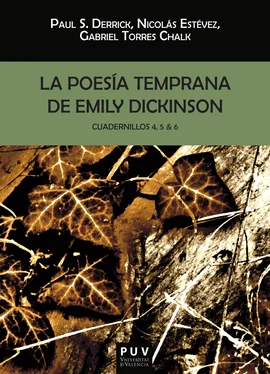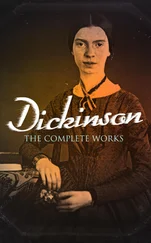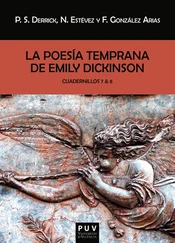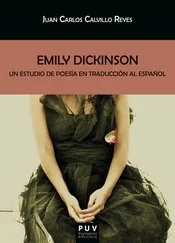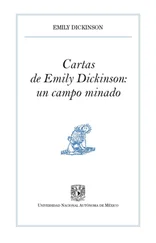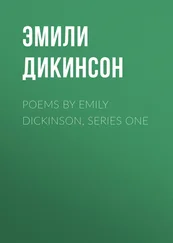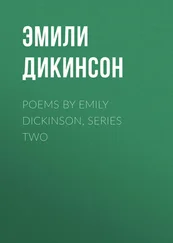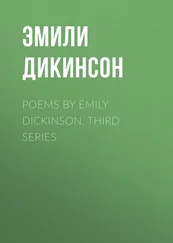Royalty enough for me
To subdue the Bumblebee.
1859
C4-P5-J138-Fr96
Serafines pigmeos – extraviados –
Gente de terciopelo de Vevay –
Bellezas de algún día perdido de verano –
Séquito exclusivo de las abejas –
París no podría desplegar la tela
Atado aquí con Esmeralda –
Venecia no podría mostrar una mejilla
De lustre tan suave –
Jamás una Emboscada tal
De brezo y hojarasca dispuesta
Para mi pequeña dama de damasco –
Prefiero llevar su porte elegante
Que el distinguido rostro de un Conde –
Prefiero vivir como ella
Que ser el “Duque de Exeter” –
Realeza suficiente para mí
Es someter al Abejorro.
1859
F4-P6-J83-Fr88
Heart not so heavy as mine
Wending late home,
As it passed my window
Whistled itself a tune –
A careless snatch – a ballad –
A ditty of the street –
Yet to my irritated Ear
An Anodyne so sweet –
It was as if a Bobolink
Sauntering this way
Carolled, and mused, and carolled –
Then bubbled slow away –
It was as if a chirping brook
Opon a toilsome way
Set bleeding feet to minuets
Without the knowing why.
Tomorrow – night will come again –
Perhaps – tired and sore –
Oh Bugle – by my window
I pray you stroll once more.
1859
C4-P6-J83-Fr88
Un corazón no tan pesado como el mío
Dirigiéndose tarde a casa,
Al pasar por mi ventana
Silbaba una melodía –
Un chasquido descuidado – una balada –
Una tonadilla de calle –
Sin embargo a mi oído irritado
Anodino y tan dulce –
Cual si un Mirlo
Al detenerse así
Entonaba, y encantaba, y volvía a entonar –
Y entonces se alejaba balbuceando –
Era como si un gorgojeante arroyo
Sobre un pasaje abrupto
Sus pies sangrantes bailaran minuetos
Sin saber por qué.
Mañana – la noche retornará –
Tal vez – cansada y dolorida –
Oh Corneta – bajo mi ventana
Te ruego que pases una vez más.
1859
F4-P7-J139-Fr89
Soul – Wilt thou toss again?
By just such a hazard
Hundreds have lost indeed –
But tens have won an all –
Angel’s breathless ballot
Lingers to record thee –
Imps in eager Caucus
Raffle for my Soul!
1859
C4-P7-J139-Fr89
Alma – ¿Vas a arriesgar otra vez?
Sólo por tal riesgo
Cientos han perdido –
Pero decenas han ganado un mundo –
El voto sin aliento de un Ángel
Ansía por recordarte –
¡Duendes en el vehemente Cauco
Apuestan por mi Alma!
1859
F4-P8-J140-Fr90
An altered look about the hills –
A Tyrian light the village fills –
A wider sunrise in the morn –
A deeper twilight on the lawn –
A print of a vermillion foot –
A purple finger on the slope –
A flippant fly opon the pane –
A spider at his trade again –
An added strut in Chanticleer –
A flower expected everywhere –
An axe shrill singing in the woods –
Fern odors on untravelled roads –
All this and more I cannot tell –
A furtive look you know as well –
And Nicodemus’ Mystery
Receives its’ annual reply!
1859
C4-P8-J140-Fr90
Las colinas parecen diferentes ahora –
Una luz de Tiro permea la aldea –
Un amanecer más amplio por la mañana –
Un crepúsculo más profundo sobre el prado –
La huella de un pie bermellón –
Un dedo púrpura sobre la pendiente –
Una mosca impertinente sobre el cristal –
Una araña de vuelta a su tarea –
Un paso más ligero del Gallo –
Una flor prevista en cualquier lugar –
La estridencia de un hacha surgiendo del bosque –
Perfumes de helechos en caminos sin transitar –
Todo ello y más que no puedo relatar –
Un matiz furtivo que has visto también –
¡Y el Misterio de Nicodemo
Recibe su contestación anual!
1859
F4-P9-J141-Fr91
Some, too fragile for winter winds
The thoughtful grave encloses –
Tenderly tucking them in from frost
Before their feet are cold.
Never the treasures in her nest
The cautious grave exposes,
Building where schoolboy dare not look,
And sportsman is not bold.
This covert have all the children
Early aged, and often cold,
Sparrows, unnoticed by the Father –
Lambs for whom time had not a fold.
1859
C4-P9-J141-Fr91
Algunos, demasiado débiles para los vientos de invierno
La solícita tumba encierra –
Tiernamente las resguarda de las heladas de la mañana
Antes de que sus pies se enfríen.
Jamás los tesoros en su nido
La cautelosa tumba expone,
Situándose donde ningún escolar se atrevería a mirar,
Ni cazador se atreve entrar
Este escondrijo tienen todos los niños
De temprana edad, y a menudo con frío,
Gorriones, desapercibidos por el Señor –
Corderos para quienes el tiempo ha terminado.
1859
F4-P10-J142-Fr85
Whose are the little beds – I asked
Which in the valleys lie?
Some shook their heads, and others smiled –
And no one made reply.
Perhaps they did not hear, I said,
I will inquire again –
Whose are the beds – the tiny beds
So thick opon the plain?
‘Tis Daisy, in the shortest –
A little further on –
Nearest the door – to wake the 1st –
Little Leontodon.
‘Tis Iris, Sir, and Aster –
Anemone, and Bell –
Bartsia, in the blanket red –
And chubby Daffodil.
Meanwhile, at many cradles
Her busy foot she plied –
Humming the quaintest lullaby
That ever rocked a child.
Hush! Epigea wakens!
The Crocus stirs her lids –
Rhodora’s cheek is crimson –
She’s dreaming of the woods!
Then turning from them reverent –
Their bedtime ‘tis, she said –
The Bumble bees will wake them
When April woods are red.
1859
C4-P10-J142-Fr85
¿De quién son las camas pequeñas – pregunté
Que en los valles yacen?
Algunos negaron con la cabeza, y otros sonrieron –
Pero nadie contestó.
Tal vez no oyeron, dije,
Preguntaré una vez más –
¿De quién son esas camas – las camas menudas
Tan tupidas sobre el llano?
Es la Margarita, en la cercanía –
Un poco más allá –
Próximo a la puerta – para despertar la primera –
Pequeño Diente de León.
Es el Iris, Señor, y el Áster –
La Anémona, y Campanilla Azul –
La Bartsia, sobre la roja manta –
Y el Narciso rechoncho.
Entre tanto, en muchas cunas
Su ocupado pie las iba surcando –
Tarareando la nana más pintoresca
Que nunca había calmado a ningún niño.
¡Silencio! ¡El Epigea 1se despierta!
¡El Azafrán agita sus párpados –
La mejilla de la Rhodora es carmesí –
Y sueña con los bosques!
Entonces volviéndose de ellos reverente –
Es hora de dormir, ella dijo –
Los Abejorros las despertarán
Cuando los bosques de abril sean rojos.
1859
F4-P11-J143-Fr86
For every Bird a nest,
Wherefore in timid quest
Some little Wren goes seeking round –
Wherefore when boughs are free,
Households in every tree,
Pilgrim be found?
Perhaps a home too high –
Ah Aristocracy!
The little Wren desires –
Perhaps of twig so fine –
Of twine e’en superfine,
Her pride aspires –
Читать дальше
